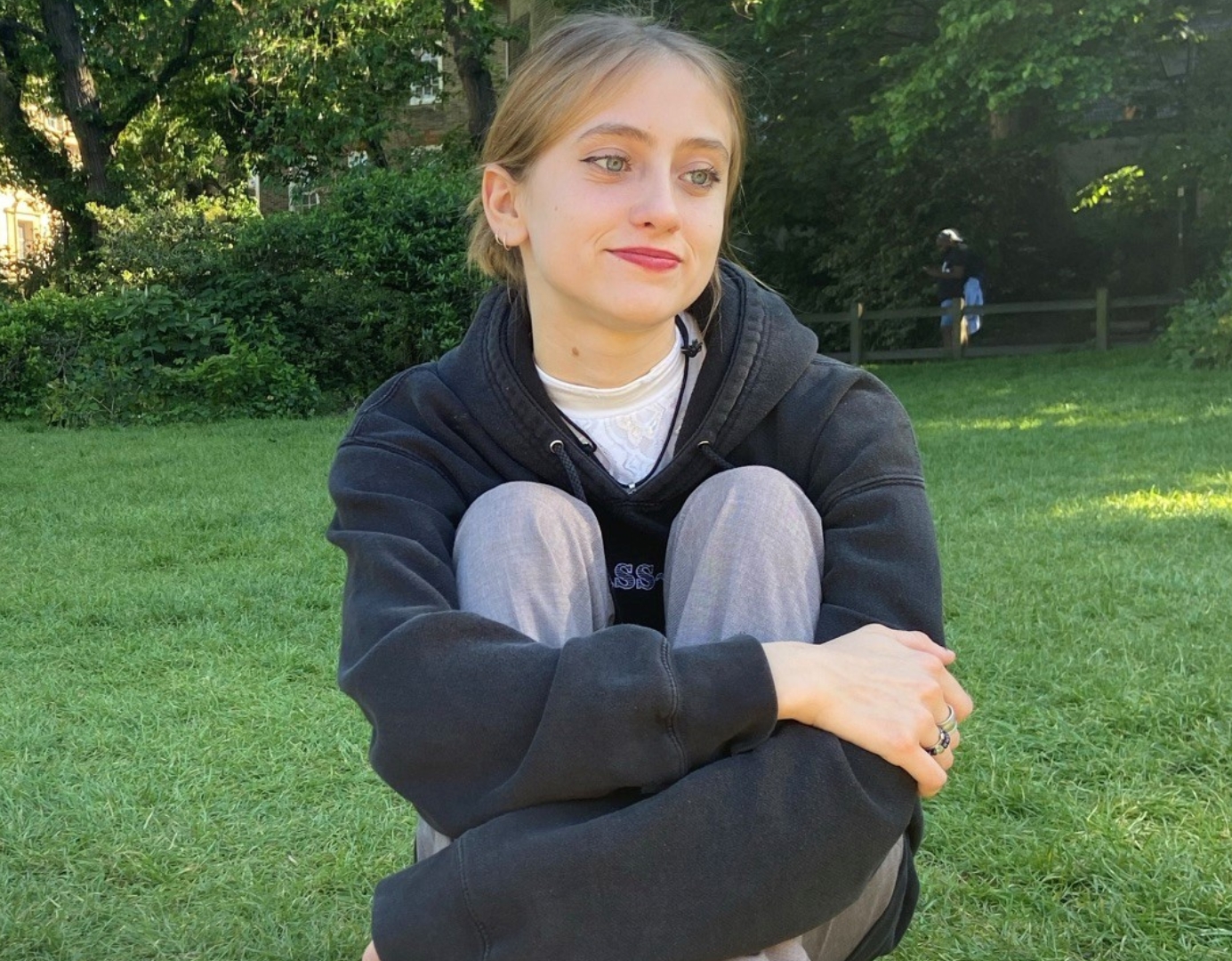Charlotte
Charlotte talks about her diagnosis of diffuse large B-cell lymphoma at age 19.

Back in September 2022, I had just started in my first year at university. I was 19 and busy settling in and making new friends. Along with everyone else in my flat, I caught ‘Freshers’ Flu.’ But whilst everyone else seemed to get over it quite quickly, I was still feeling really unwell.
I have asthma, so thought that perhaps it was due to that, or even a possible chest infection. But I developed a persistent, excessive cough that went on for a number of weeks and I also had spider veins appear on my stomach. I was turned away from the GP a couple of times during that period, but when my face started to swell I was sent to A&E where I underwent further tests. I had an X-ray which showed a 14cm tumour in my chest. It had been pushing on my heart, which explained the swelling in my face and visible spider veins.
I knew it was cancer, but I was still physically sick when the doctor told me I had suspected lymphoma. I was admitted to hospital so the medical team could determine what type of lymphoma I had. I had a lumber puncture to check the lymphoma was not in my brain, and there were concerns that I also had it in my stomach – but in the end, it turned out that it was only in my chest area. A short while later, in November 2022 my diagnosis was confirmed as diffuse large B-cell lymphoma (DLBCL), a type of non-Hodgkin lymphoma. I didn’t know what lymphoma was before my diagnosis. I knew it must have been something to do with lymph nodes because of the name, but it took a while for it to sink in once the doctors explained it’s a blood cancer.
I received my first round of R-CHOP chemotherapy while I was staying in hospital, and then the remaining five as an outpatient. The side effects of the chemotherapy were harsh. Whilst I didn’t get much sickness, I just felt so cold. The worst part for me was losing all my hair within a week – it was quite a shock for it to happen so quickly. My sense of taste changed as well and as I was immunocompromised, my boyfriend and family had to wear masks around me.
My treatment plan was chemotherapy followed by radiotherapy. I asked if I was eligible for proton beam therapy and my case was accepted, so in April 2023 I lived in hospital accommodation in London and received the treatment for three weeks. Physically I felt OK – the treatment itself was fine and it didn’t hurt, but mentally I wasn’t in a good place as I missed my friends and my boyfriend. I shared the accommodation with others receiving treatment and it felt very strange living in such a posh apartment for such a sad reason. It was a weird time – there was so much to do in London, but I didn’t want to do anything as I felt insecure about my hair. I got a wig but it wasn’t suitable for me, so I wore a hat the whole time.
After completing my treatment, I received regular scans and as I write this in May 2024 I have been told that I am now in remission. I have just finished my first year at university, which I repeated, and went to Lisbon with my boyfriend. I am currently applying for part time jobs for the summer, and am getting ready to move in with my uni friends in August ready for my second year.
I am so grateful to my family, boyfriend and friends for their support during that time – particularly my mum who was with me the whole time. But I am also grateful for the information I received from Lymphoma Action. We were handed an information book from the Charity and it was so helpful for my family and I to read through. It explained things in terms you could understand, and it was laid out really clearly. It helps to have it explained in a simple way when you have no idea what is going to happen. I also found comfort in reading other people’s personal stories on Lymphoma Action’s website and social media, as seeing that they have come out the other side was really helpful. That’s why I am keen on talking about my story – to give the support to other people that I felt when reading other people’s experiences. But I also want to do it for myself –I don’t want to pretend it didn’t happen, which could be easy to do now things are back to normal.
My message for any young person going through treatment is that cancer doesn’t have a ‘face’. It doesn’t have to become your whole identity, and there isn’t a certain way to look or feel when you receive a diagnosis. When I was ill and lost my hair, it felt weird that strangers could look and know instantly what was happening to you. But you do have an identity outside of being a cancer patient – it’s not your defining trait. That’s what I would say to myself now - that this will pass and there is more to you than being ill.
Charlotte shared her story with us as part of our Let's talk lymphoma awareness campaign, running throughout Blood Cancer Awareness Month in September.
